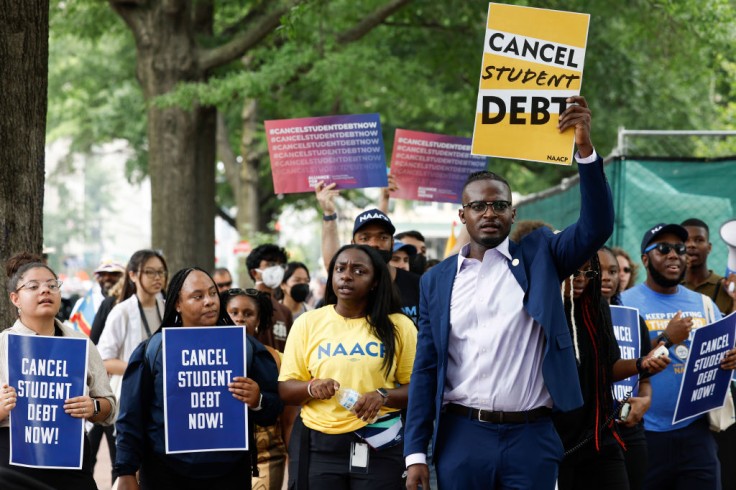
In a significant blow to President Joe Biden's administration, the Supreme Court delivered a sharp blow to his ambitious plan to provide $400 billion in student loan debt relief for millions of Americans.
According to NPR, the 6-3 decision, with conservative justices in the majority, declared that the Biden administration had overstepped its authority by attempting to implement the plan without congressional endorsement.
As a result, borrowers will be left responsible for repaying their loans, with payments expected to resume in the fall.
The Supreme Court's Ruling and Its Implications in Student Loan
The Supreme Court's majority opinion determined that the Biden administration lacked the legal authority to implement such a costly and extensive program without explicit approval from Congress.
Chief Justice John Roberts, writing for the court, concurred with the arguments put forth by six states that the HEROES Act, a bipartisan 2003 law dealing with national emergencies, did not authorize the loan cancellation plan as claimed by the administration.
According to the Associated Press, while Justice Elena Kagan, joined by the court's two other liberal justices, dissented and expressed concerns about the elimination of loan forgiveness for millions of Americans, the ruling stood.
Furthermore, Justice Sonia Sotomayor cautioned against her fellow justices assuming the authority to determine the extent of aid that individuals in need would receive, emphasizing the importance of leaving such decisions to education experts.
Additionally, the HEROES Act, originally designed to protect service members from financial harm during wartime, has empowered the secretary of education to adjust federal student loan terms during national emergencies.
The decision leaves borrowers facing the resumption of repayments, which had been on hold since the start of the pandemic three years ago.
Biden's Response and Plans Moving Forward
President Biden, who initially expressed doubts about his authority to offer student loan forgiveness, vowed to continue the fight for debt relief despite the Supreme Court's ruling.
Blaming Republican "hypocrisy" for obstructing his original effort, Biden announced his intention to pursue a new path for student debt relief using the Higher Education Act.
NBC News reported that President Biden announced his intention to utilize the 1965 Higher Education Act, a separate law from the one involved in the Supreme Court cases, to address the student loan debt issue, citing the Education Department's broad authority under this act.
However, the implementation of this proposal may require additional time.
Senate Majority Leader Chuck Schumer expressed disappointment and criticized the ruling as "cruel," highlighting that the Biden administration still has other legal options to pursue widespread student debt cancellation.
Meanwhile, student loan repayments, paused during the COVID-19 pandemic, are scheduled to resume at the end of August, with the first payments due in October.
The Supreme Court's decision places immediate pressure on the administration to identify an alternative path for student debt forgiveness that could withstand potential legal challenges.
Public Reaction and the Way Forward
The Supreme Court's decision to strike down Biden's student loan debt relief plan garnered mixed reactions.
Advocacy groups supporting debt cancellation strongly condemned the ruling, urging President Biden to find alternative avenues to fulfill his promise of debt relief.
Natalia Abrams, president and founder of the Student Debt Crisis Center, emphasized that the responsibility for taking action now falls squarely on Biden's shoulders.
With loan repayments set to resume in October and interest accruing as early as September, the resumption of student loan burdens will likely have a significant impact on millions of Americans.
The proposed forgiveness program, estimated at $400 billion over 30 years, had the potential to alleviate the financial strain on individuals making less than $125,000 or households with incomes below $250,000.
As borrowers await further developments, the resumption of loan repayments raises concerns about the financial well-being of millions of Americans burdened by student loan debt.